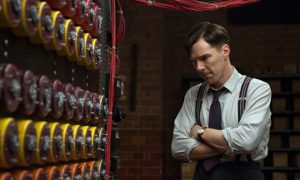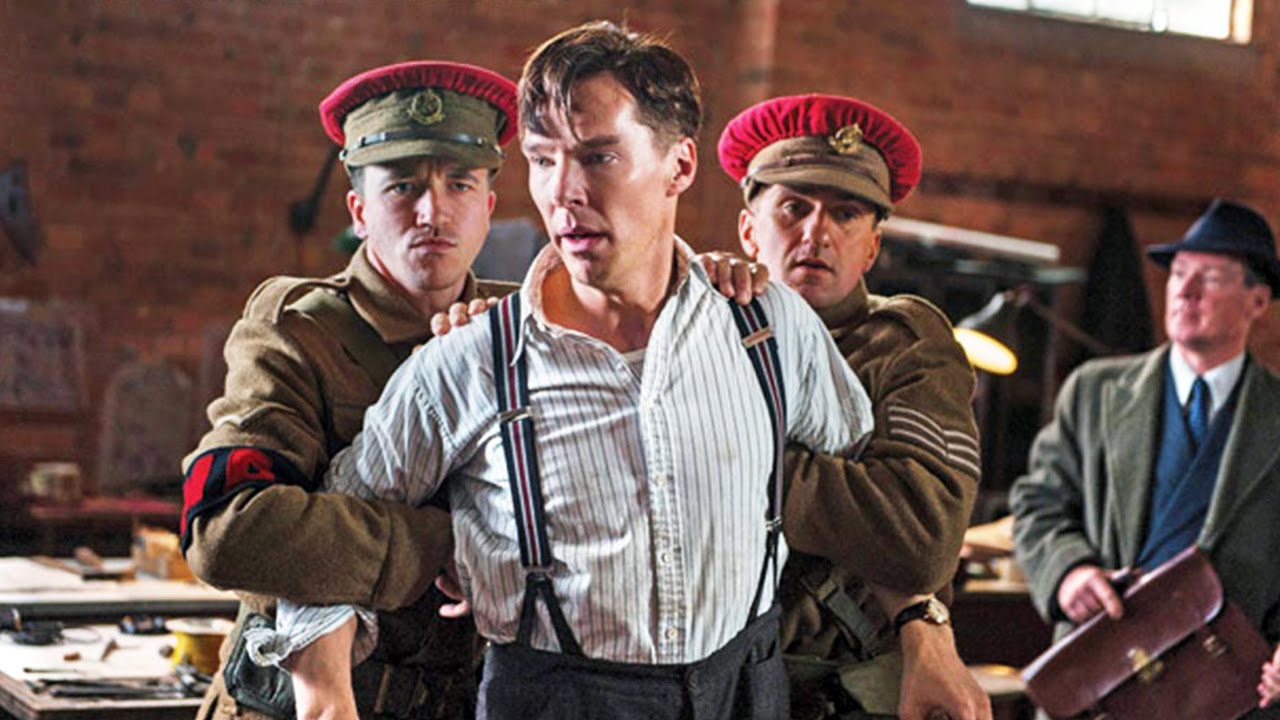
The next in the line of this year’s Oscar biopics, “The Imitation Game” thrusts the moviegoer into Great Britain in the midst of the Second World War. But unlike other modern classics of the World War II genre – “Saving Private Ryan” and “Inglorious Bastards” are two that come to mind – “The Imitation Game” does not plunge the viewer into the middle of the actual fighting. Instead, in a manner similar to that of the masterpiece “Casablanca,” the viewer experiences the war from the periphery.
“The Imitation Game” tells the story of Alan Turing, played excellently by “Sherlock”-star Benedict Cumberbatch. Turing, a Cambridge-educated mathematician and computer scientist, was a brilliant code-breaker, an accomplished long-distance runner, and a greatly misunderstood figure. Widely considered the father of theoretical computer science, Turing was employed as a fellow at King’s College, Cambridge when he began working part-time for a new branch of the British government, the Government Code and Cypher School (GC&CS). The GC&CS had one job – breaking the ciphers used by the Axis Powers, most notably the German “Enigma” code.
The GC&CS – which was later to become the Government Communications Headquarters – was based at Bletchley Park. Bletchley became the center of the British code-breaking efforts and one of the most intensely secure and secretive places in Great Britain. Some historians have estimated that the code-breaking operations housed at Bletchley shortened World War Two by two to four years. By 1943, the code-breakers at Bletchley using Turing’s computer designs were breaking 84,000 Enigma messages a month.
The biopic is based on Andrew Hodges’ Turing biography, “Alan Turing: The Enigma,” but the film does not always hold true to the historical facts. Part of the historical leniency apparent in “The Imitation Game” may result from the appeal of the classic British spy story. The filmmakers allowed the allure of “espionage” and the secrecy of Bletchley Park to run away with the history of Turing’s life. In the movie, Turing is a member of the same cryptography group as the Soviet spy John Cairncross, who threatens to out Turing as a homosexual if Turing tells the authorities that Cairncross is a spy. Some historians suspect that the real-life Cairncross was the fifth member of the Cambridge Five spy ring, a group of Cambridge-educated men who provided information to the Soviet Union.. As of today, the British government and major academics have identified four of the five members, including Kim Philby, the ring’s most infamous member.
Perhaps the allure of the Cambridge Five was so irresistible to director Morten Tyldum and screenwriter Graham Moore that they distorted the facts. Cairncross and Turing did not work in the same units at Bletchley, and it is hard to believe that these men would have met while at Bletchley. Cairncross wrote in his autobiography, “The rigid separation of the different units made contact with other staff members almost impossible, so I never got to know anyone apart from my direct operational colleagues.” The plot line of Turing and Cairncross’ interactions is but one example of how “The Imitation Game” takes liberties with the historical record.

Still, “The Imitation Game” raises many important points regarding 20th century Britain. Among its many points – the rise of modern computers, for example – the film strives to get across two equally important yet vastly different commentaries. First, “The Imitation Game” reminds viewers that war is won by both brave men and women on the frontlines and those working hard for the cause back home. Second, it does not allow the horrors of the British “indecency” law to hide in the shadows.
The war effort involved the contributions of all citizens. The men and women of Bletchley Park worked tirelessly to support those on the front lines. The Enigma code, which had different variants for different purposes, sent orders from German High Command to U-boats, army units, and air force battalions. Take, for instance, the breaking of the U-boat cables: by cracking the code of where the submarines were operating, merchant conveys heading from North America to Europe could avoid the deadly subs. Churchill once said that “the only thing that ever really frightened me during the war was the U-boat peril.”
“The Imitation Game” does not shy away from Turing’s homosexuality or the controversy surrounding it. Despite his incredible accomplishments and contributions to the war effort, Turing was not heralded by his government. In February 1952, Turing was arrested for having an affair with a young man in Manchester, England. Homosexuality, or “indecency” in British terminology, was a crime punishable by either jail time or chemical castration. Following his conviction, Turing was injected with hormones that left him impotent. Homosexuality was cause to remove Turing’s security clearance, as it made him a security risk in the eyes of the British government.
Alan Turing committed suicide in 1954 at the age of 41. The British government under Prime Minister David Cameron issued a formal apology to Turing in 2009, and he was officially pardoned by Queen Elizabeth II in 2013. However, this does not make up for the crimes the British state imposed on him, one of its most brilliant minds, or on any homosexuals in 20th Century Britain.
“The Imitation Game” does not allow the dark stains of history to hide in the shadows. Instead, it places the horrors of the British “indecency” laws on full display in order to remind moviegoers of the oppression homosexuals faced in the 20th century. “The Imitation Game” is a celebration of Alan Turing’s genius and the hardworking men and women of Bletchley Park, yet it airs out the moral crimes of the British government against one of its greatest sons.


